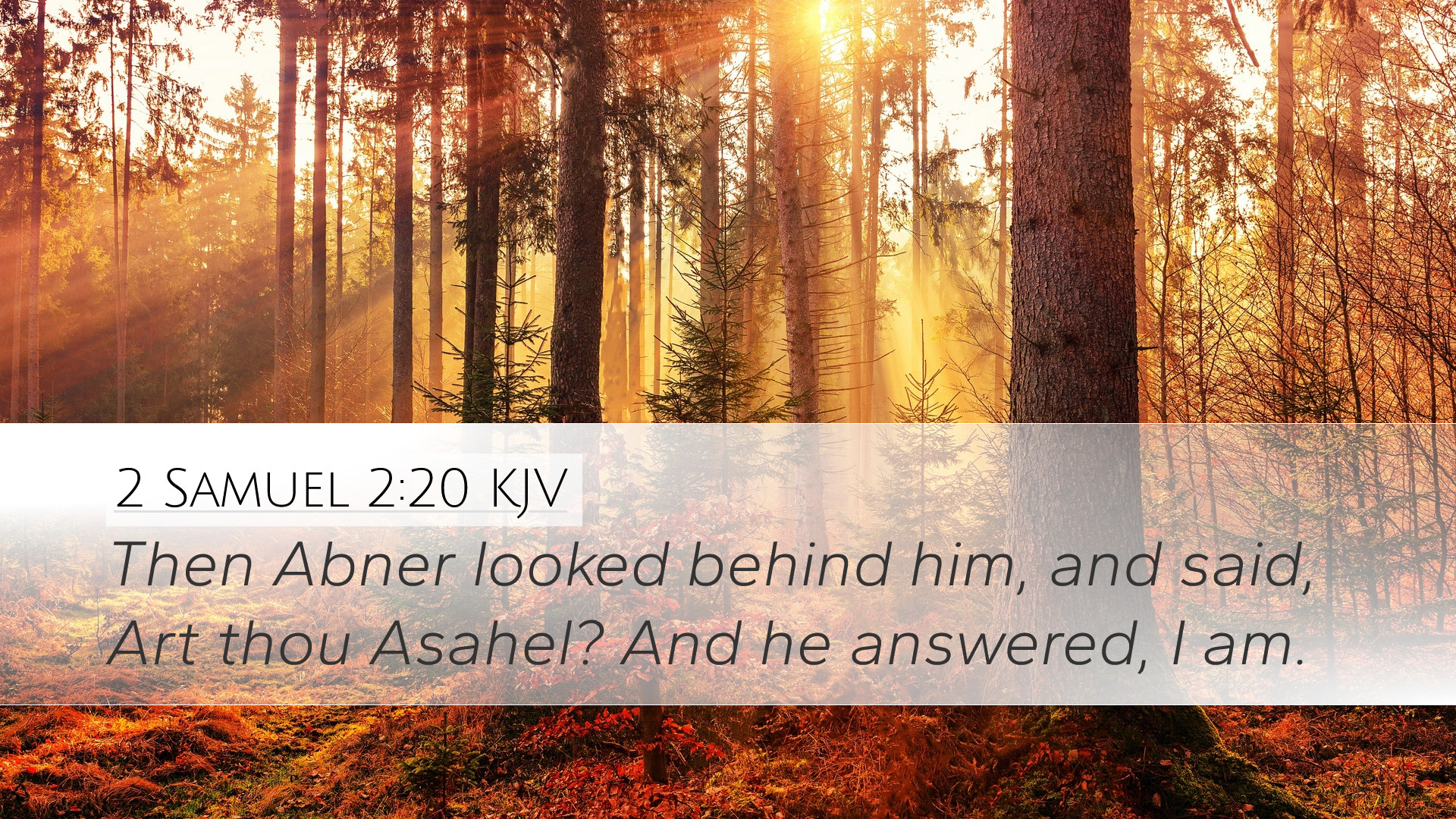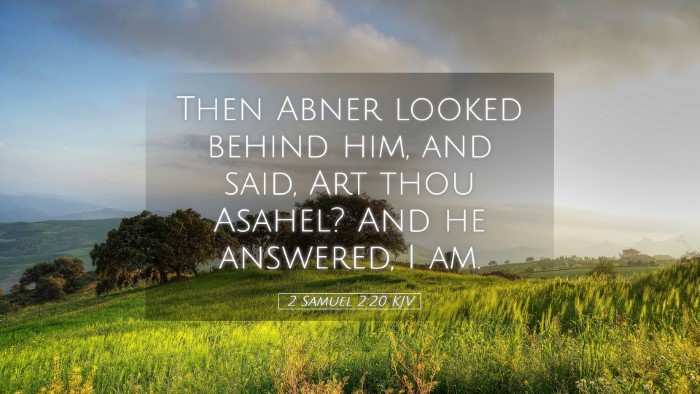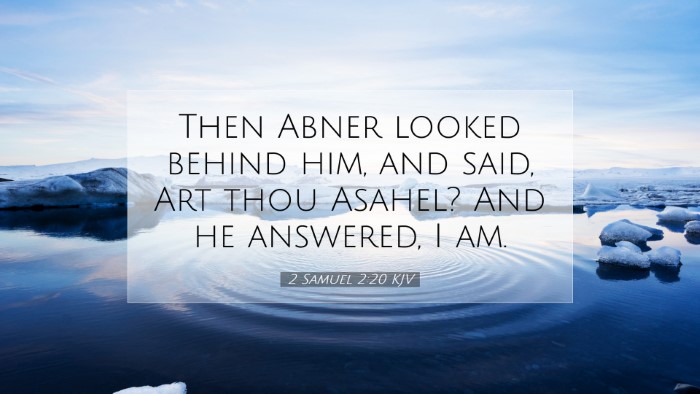Commentary on 2 Samuel 2:20
Verse Context
2 Samuel 2:20 stands within the context of the early struggles for kingship in Israel after the death of Saul. The verse states, "And Abner looked behind him, and said, Is it thou, Asahel? And he answered, I am." This moment is part of a tense confrontation between Asahel, a soldier of David, and Abner, the commander of Saul’s army. It is critical because it illustrates themes of loyalty, ambition, and the violent realities of political power struggles.
Insights from Commentaries
Matthew Henry
Matthew Henry, in his biblical commentary, emphasizes the character of Asahel as notable for his speed and zeal. Henry points out that Asahel's relentless pursuit of Abner showcases a young warrior's fervor but also his immaturity in the face of the seasoned commander. He notes:
- Speed vs. Wisdom: “Asahel did not heed the risks of his impetuous chase, demonstrating the folly of overconfidence.”
- God’s Providence: Henry reflects on God’s sovereign hand over the chaos of war, suggesting that the fate of nations can be intertwined with individual choices.
Albert Barnes
Albert Barnes provides a detailed exegesis, offering several critical understandings of the text:
- The Identity of Asahel: “As Abner identifies Asahel, it signifies more than recognition; it emphasizes the inescapable nature of their conflict and the personal stakes involved.”
- The Consequences of Conflict: “This encounter presages the eventual fatal conflict between the house of Saul and the house of David, encapsulating the tragic cycle of revenge and bloodshed.”
Barnes also posits that the question "Is it thou, Asahel?" carries significant weight, considering Abner’s respected authority as a general. The mutual recognition underscores the depth of personal relationships tarnished by the rivalry of dynasties.
Adam Clarke
Adam Clarke's commentary provides a rich cultural and historical backdrop to the events:
- Asahel's Reputation: “Clarke elaborates that Asahel was not just a soldier but the brother of Joab, highlighting the familial enmity that characterized these battles.”
- Divine Oversight: “He reminds readers that these interactions are not merely human conflicts, as God’s providence governs the outcomes of such engagements.”
- The Nature of Leadership: “Asahel’s boldness in confronting Abner reveals the naiveté that often accompanies young leaders who do not fully grasp the intricacies of political honor and warfare.”
Theological Implications
The engagement between Asahel and Abner is steeped in theological significance. It raises essential questions about ambition, the quest for power, and how personal relationships can be strained or destroyed in the pursuit of leadership.
- Divine Sovereignty: The interaction can be viewed as an illustration of God’s sovereignty even amid human conflict. The events leading to the recognition of Asahel signal the unfolding of divine plans regarding leadership in Israel.
- Moral Lessons: Asahel’s pursuit serves as a cautionary tale for those who might pursue personal ambitions without recognizing the moral and ethical implications.
- Human Relationships: The meeting between two warriors underscores the complexities of loyalty as political allegiances often conflict with personal bonds.
Practical Applications
This passage applies to contemporary readers, including pastors and theologians, in various ways:
- Leadership Lessons: Leaders are reminded to consider the weight of their actions and their effects on personal and communal relationships.
- Conflict Resolution: It highlights the necessity of wisdom in the resolution of conflicts, especially in the church and communities, where relationships run deep and are often fraught with tension.
- Understanding Ambition: The character of Asahel illustrates the need for tempered ambition; zeal must be balanced with wisdom and respect for authority.
Conclusion
The encounter in 2 Samuel 2:20 serves as a poignant reminder of the violent struggles inherent in the establishment of leadership and authority, drawing out themes of loyalty, ambition, and the tragic consequences of rivalry. Through the insights of recognized biblical commentators, the verse continues to challenge and inspire readers to seek deeper understandings of their faith, relationships, and roles within their communities.


